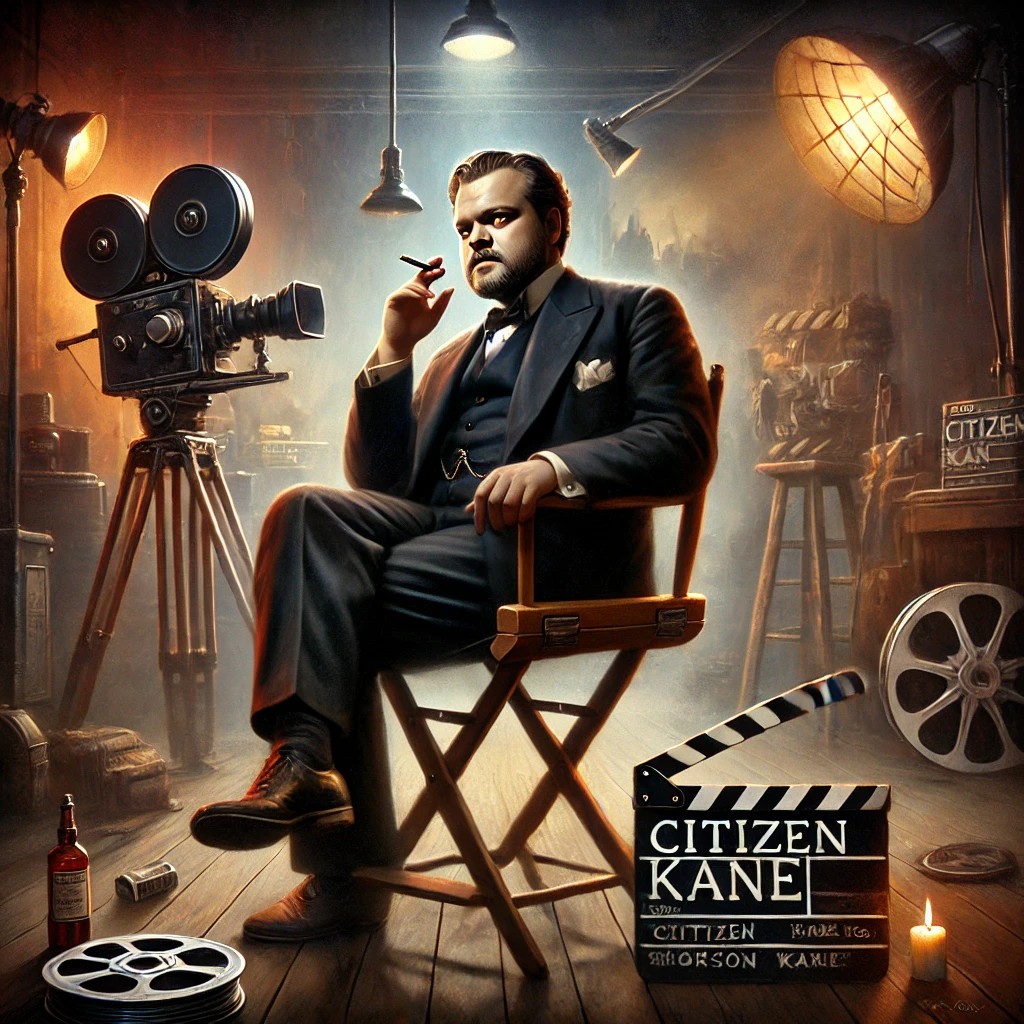Orson Welles (1915 - 1985)
The director who revolutionised modern cinema

Orson Welles: the revolutionary film genius who changed visual and narrative language forever. From the radio broadcast of The War of the Worlds to the timeless masterpiece Quarto Potere, Welles left an indelible mark, amidst extraordinary successes and tensions that made him an enigmatic and complex figure in the history of entertainment - Image generated with IA
Orson Welles was a famous director and screenwriter, active mainly in the 1940s, famous for revolutionising the world of film and entertainment with visionary films and offbeat scripts. Born in Wisconsin, the young Welles already had clear ideas about his future: at the age of 20, he was already a prominent figure on Broadway. His career took a turn when, in 1938, he aired the historic radio show The War of the Worlds, inspired by the novel by H.G. Wells. On that occasion, Welles caused panic among the audience by faking an alien attack on the United States.
In 1941, at only 26 years of age, he wrote and directed Citizen Kane, considered by many critics to be one of, if not the greatest film of all time. The film distinguished Welles for his exceptional use of chiaroscuro, non-linear editing, and deeply psychological and emotional themes that set him apart from the Hollywood film industry, which until then had limited itself to offering flat, linear stories with no psychological depth. Ironically, the film was initially a commercial flop, prompting a boycott by rival Welles figures such as the tycoon William Randolph Hearst.
Welles's career was a constant mixture of successes and setbacks due in part to the tensions and rivalries that had arisen between the director and producers in the Hollywood world, who were unaccustomed to the director's innovative style. This climate led Welles to move to Europe, beginning to move and live in several countries, including Italy.
Welles died in 1985, leaving a great cinematic legacy, but remaining an enigmatic and complex figure. A cinematic genius capable of portraying emotions and complex human nuances, but who failed to relate to people in a way that endeared him to them. His legacy is still alive in contemporary cinema, which owes much of its evolution to Welles' pioneering work.
Alberto Anile, Orson Welles in Italy Indiana University Press, September 2013
James Naremore, The Magic World of Orson Welles University of Illinois Press, July 2015
Toniatti Francesco
Master of Arts in International Relations - University of Leiden
Master of Arts in History and Oriental Studies - University of Bologna
2025-06-29
Francesco Toniatti
